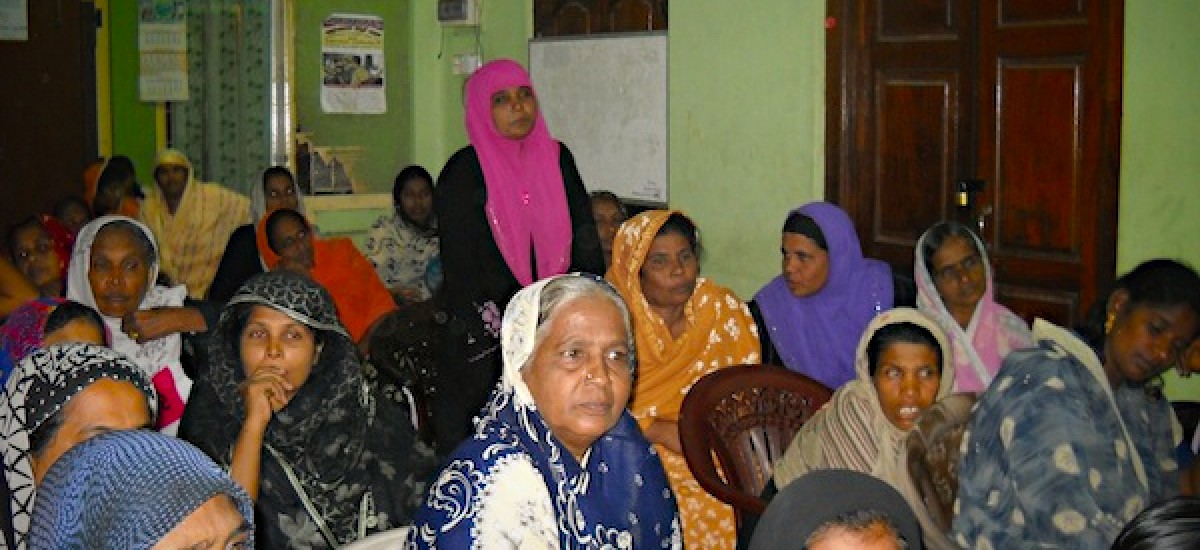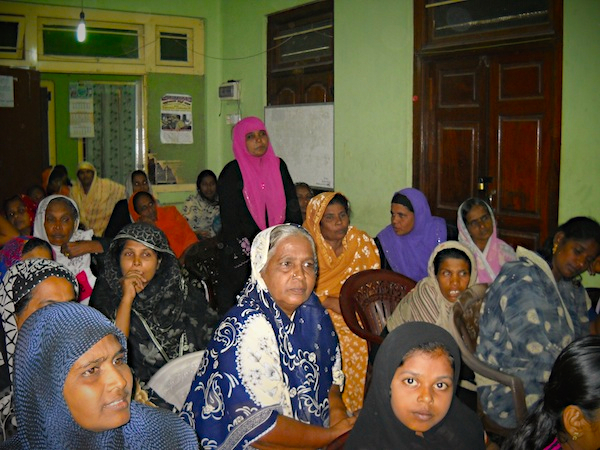As one of the members of the Citizens’ Commission on the Expulsion of Muslims from the Northern Province by the LTTE in October 1990 (Citizens’ Commission), it is my privilege and pleasure to say a few brief words on behalf of all the Commissioners on the occasion of the launch of our Report.
The Citizen’s Commission was an initiative of the Law and Society Trust (LST) and its partners’ in the absence of an official government inquiry into the expulsion of Muslims from the Northern districts by the LTTE. Our mandate was to document comprehensively and in depth the experiences of the expulsion, the subsequent two decades of displacement and resettlement of the Northern Muslims as well as their expectations of the state and civil society.
The fact that this was conceived of as a ‘Commission’, I think has important methodological as well as conceptual implications. A commission of inquiry (CoI) is generally appointed by the Executive Branch to inquire and report on a particular incident or series of incidents, to verify facts and to determine responsibility. As opposed to judicial proceedings in a court of law, a CoI process provides a number of advantages. A CoI process is able to 1) investigate the underlying socioeconomic and political causes in addition to uncovering facts and assigning responsibility; 2)unlike court proceedings which are adversarial, where facts and legal arguments are presented by counsel, and there sis limited ability to investigate further, a CoI process allows for an inquisitorial approach which allows the Commissioners’ to to be open to a wider range of questions they want answers for as well as the witnesses who they want to hear and take account of; 3) lastly, it also has the ability to involve and inform the public in ways not available in judicial proceedings.
This initiative itself is a unique achievement, in that it is perhaps it is one of the few instances of such a broad-based CoI process being initiated by civil society in Sri Lanka. Our Commission brought together a diverse group of civil society members at the national level and the regional level as well as a number of community based organisations with roots in the Northern Muslim community. What we all have in common is a deep commitment to ensure that the voices of Northern Muslims are heard and that justice is ensured.
We know that official Commissions of Inquiry in Sri Lanka do not always yield expected results. A number of recent studies on Commissions appointed by successive governments have pointed out that they end up being tools to launch attacks against opponents, a way to deflect criticism of the government or a way to co-opt civil society members to white wash violations or all of these things at once. This is borne out, for example, in Kishali Pinto Jayawardene’s work on Commissions of Inquiry, which show how such commissions have largely served the interests of governments, and/or been a cover for impunity and therefore how counter-productive they can be. She does however, I think, make an important distinction between ‘bad’ commissions and ‘good’ commissions. While bad commissions, were patently political; had political appointees and arrived at political verdicts that suited the government of the day, good commissions did perform the function of telling the truth and did make good recommendations although never implemented. For example, the four Presidential Commissions of Inquiry into Involuntary Removal or Disappearance of Persons which functioned during the period 1994 – 2000, looked into thousands of complaints of disappearances and established that over 20,000 cases of “disappearances” had in fact occurred, most at the hands of security forces but, unsurprisingly, their recommendations were mostly ignored.
The methodology followed by us in our work and in compiling our report was multi faceted, including primary and secondary research as well the collection of close to 400 narratives from displaced persons. This research was complemented by several visits by us to different locations to meet with members of the Northern Muslim community, where we also heard first-hand accounts of their experiences and expectations. I think this process ensured a more nuanced analysis of the events of 1990 and the issues at stake. The diverse background of the Commissioners’ opened up a space to talk about the expulsion, its consequences and return and resettlement in an open and frank exchange. The presence of a number of women, both as Advisors and Commissioners allowed us to have a number of special meetings with women of the Northern Muslim community. Given that men used to dominate discussions at mixed meetings, this created an important space where women could talk about issues personal to them, including psycho social problems experienced by them. At one of the meetings, when the women learnt that one of the Commissioners (Gameela Samarasinghe) was a psychologist they opened up to her about their problems in a way they otherwise might not have, talking about their mental trauma and distress following displacement. Gameela was able to respond not just with empathy but with a deep understanding of the psycho-social implications of displacement. The presence of a retired High Court Judge Mr. Majeed, with a wealth of knowledge on land issues and land law, as a Commissioner, meant that those who came before the Commission could go deep into the critical issue of land separating perceptions and attitudes, myths and facts, and law and non law from one another. The presence of a member of the host community, Dr. Anes gave a necessary balance to the sittings in Puttalam where host – displaced community relations have been strained over the years. During our visit to Mannar, Dr. Nesiah’s recollection of Tamil-Muslim relations in Mannar during the time he was the Government Agent there (‘65-‘68) enriched our historical perspective, which has been a critical facet of the work of the Commission. My own work on Muslim Personal Law in Sri Lanka, opened up the space to talk about the ways in which women in the community are discriminated by laws endorsed by the ‘community’. We hope therefore that this process resulted in a genuine ‘truth’ seeking. We hope that it has catalysed a dialogue and discussion about the issues facing the Northern Muslim community in Sri Lanka across a number of civil society members and groups with a view to understanding and addressing those problems collectively.
The involvement of community based organisations rooted in the Northern Muslim community in this Commission ensured a high degree of community ownership of the commission process. The partner organizations were the Rural Development Foundation (RDF) the People’s Secretariat and the Community Trust Fund. It also ensured that our meetings were not always formal interactions. The Commission was welcomed into people’s homes for informal discussions over cups of tea and biscuits on numerous occasions, which gave us added insights to a number of questions.
There was also an expectation that the diversity of people and groups involved with the commission would situate the problems of the Northern Muslim community within the larger socio-political context of Sri Lanka while linking different groups working on similar issues around the country. As expressed by the coordinator, Farah Haniffa, at the outset of this process, many of the issues that the northern Muslims face are common to most SL citizens affected by the conflict, whether it relates to the ration amount, accessing services or language difficulties. Muslims to date have unfortunately not been able to articulate many of their distinct causes as part of the wider concerns of affecting the Sri Lankan polity. We hope that this process was able to realise that expectation at least to some extent.
Finally, we hope that this process reaffirms and reclaims the role of civil society not just to hold government accountable but also in the process of furthering post-war reconciliation in Sri Lanka, in an environment often hostile to civil society. We hope that the insights generated by this report will add to the ongoing discussion to seek an equitable political solution which involves all communities. There is of course no guarantee that the State will pay heed to the recommendations of the report of the Commission. Nevertheless, we hope the report does fulfill its mandate of providing a detailed and inclusive account of the expulsion, displacement, resettlement and the hopes and disappointments of our many fellow citizens. Farah Haniffa, who coordinated this process deserves a special mention and congratulations for her efforts in facilitating our working together–not always easy–as well as putting this report together in a way that brought so many people, groups, ideas, and perspectives. We hope that this can serve as a model for other efforts of this nature. We truly hope that our work will herald new possibilities of justice for Northern Muslims and open the doors wider for justice and peace for all Sri Lankans.
###
(This is an edited and adapted version of the speech made by Chulani Kodikara, at the launch of the Commission Report on 3rd Nov 2011. Also read Some observations on the Final Report of the Commission on the Expulsion of Muslims from the Northern Province by the LTTE in October 1990 and The Citizens’ Commission on the Expulsion of the Muslims from the Northern Province by the LTTE in October 1990.)


